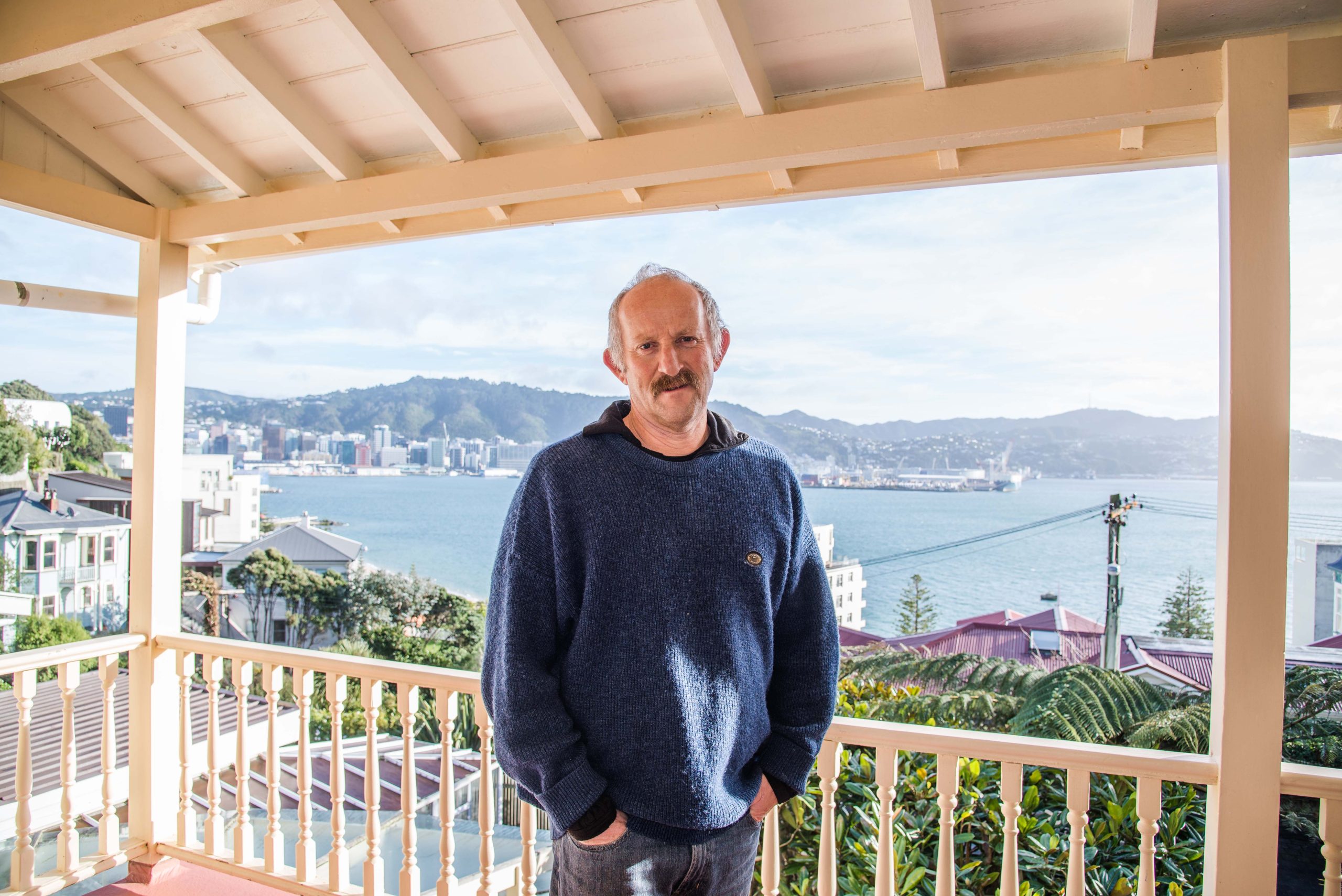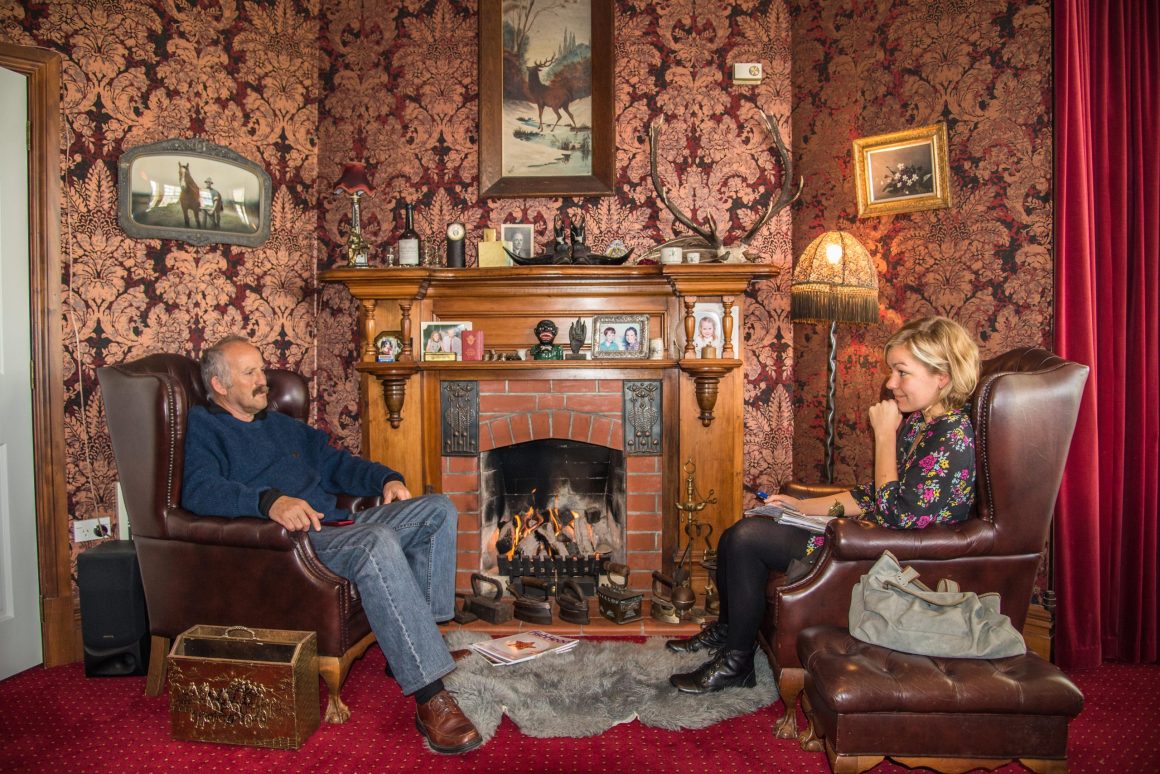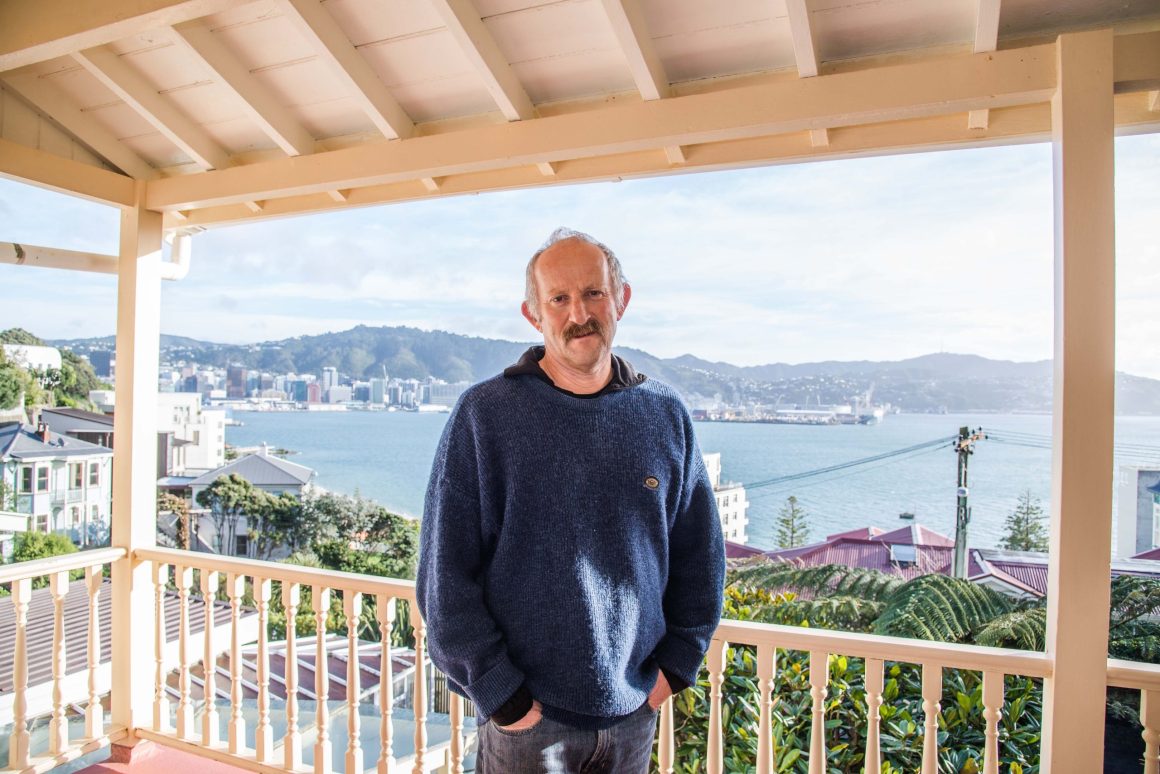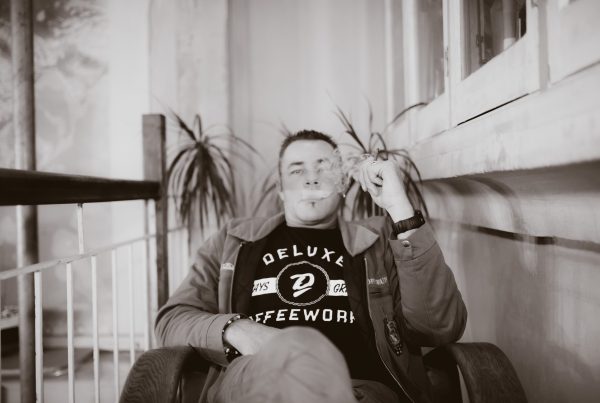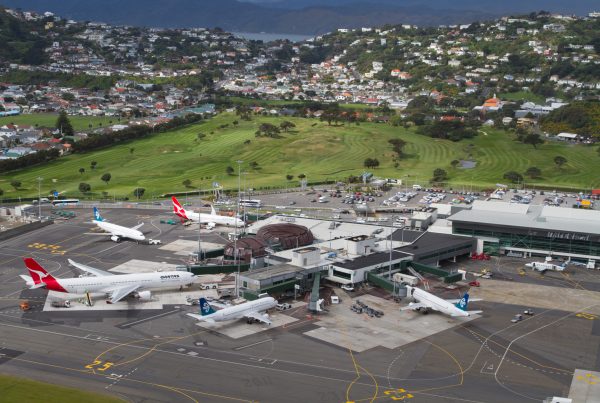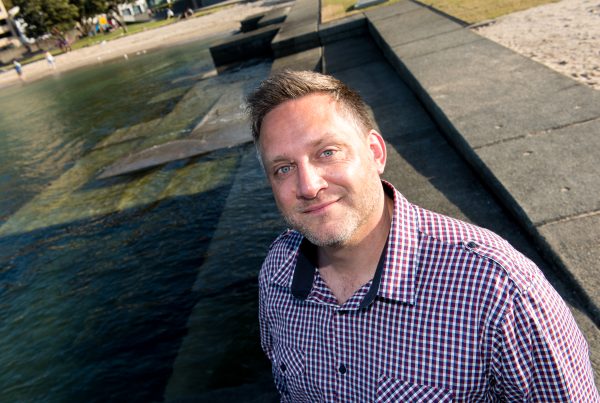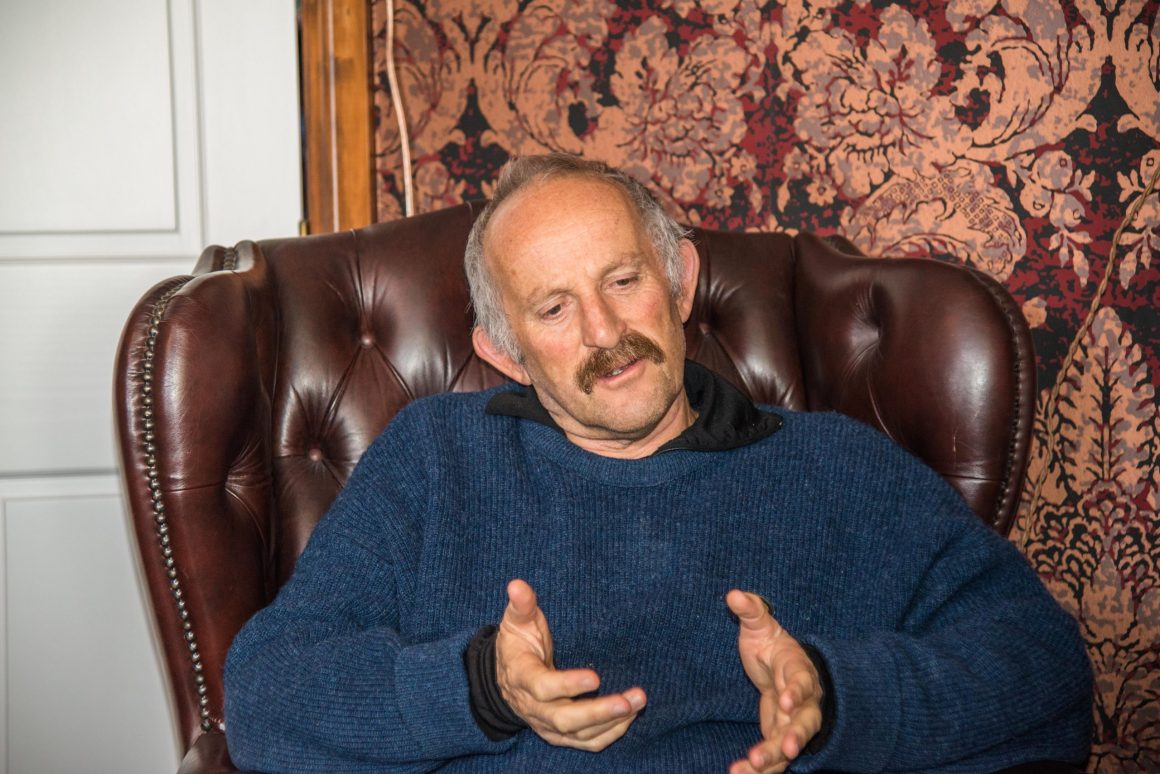
Unsurprisingly for Morgan, he was in the midst of packing for a three-month Siberian motorcycle trip, commencing the following day. We settled into our fireside armchairs and got cracking.
So, Wellington! What’s going well and what’s going wrong?
Wellington has been suffering from a shrinkage of the public sector. Then it got whacked by all the head offices suddenly going to Auckland. It’s easier for employers, they’ve got a big labour force, they’ve got their market there and it all feeds on itself.
But Wellington, it’s really a town that looks city-like, but it’s super. The developments of the wharf have made it even better – Auckland’s now emulating that. And lots of young people come here for their first jobs, to government. That underpins all your Courtenay Place and theatres.
Developing a city, the key is to make it a place people want to live. There are lovely parts of Auckland, but I’d hate to live there, because of the sheer size and getting around. When I see offices move there, it’s all well for the executives: they live in Parnell or St Heliers, but everybody else spends hours commuting.
For quality of life, if you’re not on a super-salary, Wellington’s bloody wonderful. Going forward, it’s about making it desirable. The council shouldn’t build businesses or do what the private sector would do; that’s a fool’s errand. Better to focus on infrastructure, maybe events.
I’m involved in the Enhancing the Halo (ETH) project: a conservation project getting Wellington households to make their backyards, sections, properties, friendly for wildlife.
That includes your cat-eradication campaign?
Yes. People say, “Why do you worry about native birds, there aren’t any in the city.” I say, “Well, the reason is you keep murdering them!” Y’know, you spend all this ratepayer money on Zealandia for example…
And then put a pet shop in the city centre.
Yeah, and Zealandia’s main job is to nurture the native species. Only to see when they fly beyond the prison walls, they get slaughtered. Zealandia shouldn’t aim to be the iconic wedding venue or conference centre. They should focus on making sure the ecological sanctuary is doing its job by the species. To do that, we’ve got to make sure they don’t get murdered when they leave home. Tūīs are a big bird; it’s the wee ones, the stitchbirds and robins. Zealandia gets those coming back in body bags – people bring them in, they do autopsies, and the bulk are murdered by domestic cats.
Wellington Regional Council have just cleared the possums off Miramar peninsula. It’s not too many steps out to get rid of all the predators, then that becomes a biodiversity hotspot. I’m keen to see the Halo households provide landing pads for the birds between the hotspots: Khandallah Park, Otari-Wilton’s Bush. That’ll build the bird population. It blows my mind how many people are doing stuff – we call them ‘Halo heroes’. The Karori Stream project, there’s heaps.
Enhancing your living environment, that’s what we should be doing. Paul Callaghan said you’ve got to make New Zealand a place talent wants to live: we can make Wellington a place talent wants to live. There’s no reason Trade Me or Xero should have come out of Wellington, other than that those guys were here. They, or their parents or whatever, wanted to live here.
The council’s got to know its limitations. This airport extension idea, it’s going to cost whatever, $300 million, what’s the benefit for Wellington? Apart from being told by a few businesses “If we had direct flights to Asia, our business would benefit.” I’m just saying…
Is it a priority?
That’s right. People get on bandwagons, and mortgage ratepayers up to the eyebrows. Some of those things end up being white elephants.
You say the council should know its limitations. What are your thoughts on the super-city?
You want people to feel they’ve got representation. It’s their money. If ‘super-city’ was a euphemism for Wellington City dominating Porirua and Hutt, I wouldn’t be keen. I’m for economies of scale, but not at the expense of developing those people’s neighbourhoods. If it becomes a rally cry of “We won’t have as many local government politicians, so it must be good” – it doesn’t necessarily follow. That sounds ideological, rather than logical.
Who’s your pick for mayor?
Last election was won on second preferences. If it’s between Celia and John Morrison, it will be countbacks. So it depends on how big a constituency they can build around their competitors. That’s quite a skill, as Celia’s proved.
There’s a lot of criticism that Celia hasn’t done much. But the downsize in government’s pretty hard to counter. So – relating to my thing with the airport extension – I’m not sure ‘doing much’ is the same thing as putting the ratepayers $300 million in hock to build a white elephant. I could get in there and ‘do a lot’ too, but y’know, you wouldn’t thank me for it! So, you’ve got to be careful.
John is pretty into events, sports and things, but you’ve got to build a wider constituency than that.
What if you did ‘get in there’? You talk about making Wellington a place talent wants to live. How might you achieve that if you were mayor?
It’s almost like the way I buy shares. I buy shares in companies when I like the product. That’s first. Then I assess the people. The last thing I look at’s the financials. With a city, you think, “What are important things to me in terms of making Wellington even better to live in?” Those are things I’d run for.
That’s why I love ETH. I’m involved with getting predators off Stewart Island, and we were told that if we could get the kākāpō back– because the kākāpō’s an iconic bird globally now – Stewart Island would become a major destination for birdwatchers. With the big lenses. Three million of them travel the world a year. That’s an example of monetising your natural capital: creating income and jobs out of it. Wellington’s got so much bush, it’s got that opportunity.
Stuff like that, and playing to what people value. A good environment for their kids, sports fields, drama. You don’t focus on business. That’s what the private sector does, and if you get the right people here, the talent, they’ll create jobs alright, and income. You set the environment to make this a desirable place, which it is anyway. The more Auckland bloody drowns in its own swell, the easier it should become.
You contributed a piece to Max Rashbrooke’s new book, Inequality: a New Zealand crisis. Do you think Wellington should be a ‘Living Wage’ city?
Yeah, Wellington Council wants to pay people more than the minimum wage. In New Zealand, because of globalisation and the IT revolution, the value of many jobs, functional jobs, is falling. You can automate them, or offshore them to lower cost economies. More and more New Zealanders are finding the market value of their income isn’t sufficient for them to live in dignity.
The country’s GDP continues to rise, even GDP per head. What’s happening is some are on the bus, and more and more are not. If that gets too polarised, you’ve got real big social issues. Massive. But even before you get to that point, is it really the society you want? In The Big Kahuna, we say everybody should be entitled to an unconditional basic income. Enough to fund you for more training, or to find a job.
On the other side, we shouldn’t tax income so much, we should tax wealth. I don’t pay any tax, because I’ve got my money in assets. That’s not right. That’s causing the property price escalation as well. Guys like me just keep buying houses. You make money and it doesn’t cost you. People say if you’re buying with the objective to sell, it’s taxable, which is correct. But you’re not, you’re buying to use them. One day you might sell.
So you get all these houses around, empty. Politicians say, “We’d never win trying to fix that.” They’re going to have to at some stage, because you’re getting polarisation of wealth and well-being. Do you wait till the riots?
What about local transport options?
I’d like only public transport in the city, free. It could easily pay for itself: it’s back to that quality of life. So you bring your car to the periphery of the city, and once you’re in, it’s pedestrian only or public transport. Trolley buses, trams. Not having easily accessible public transport, and the parking Gestapo – that puts people off. We should be doing the opposite: have public transport there, free, and keep the cars out.
What about what you’re up to – you’re packing at the moment for an overseas motorcycle trip?
Yes, tomorrow! Up to the top of Siberia in the Russian Far East, where Stalin sent all the political prisoners. Then we ride the 2,000km along the ‘Road of Bones’. A lot of people died on that road, they were worked to death basically, and buried on the road.
Then we’re riding to North Korea from there, and down into South Korea. Overall about 40,000km in three lots of three months. But we’ve been riding on motorbikes for ever, along the Silk Road, and up through Africa.
Every continent, I’ve read!
Yeah, and Antarctica! In 2008. We went last year as well, because you go to Antarctica and think you’re on another planet. I said to Joanne, “We’ve got to go back, I don’t believe what I saw.”
And you’ve written five motorcycling guides. Will there be another one coming out of this trip?
The Long Drop, because it is down the one longitude! The thing about motorcycle trips, you never know what’s happening the next day. Some nights you think, “Thank God I’m alive.” They’re so unpredictable, that’s part of the charm.
And in between you’re still working on Enhancing the Halo?
Yeah, and Stewart Island. I’m involved in Predator-free New Zealand, the umbrella project: there’s about 4,000 to 5,000 community-based projects. When I get back in October, we’re releasing a book on food.
Appetite for Destruction?
That’s the one. It’s at the printers at the moment in China, so that’ll keep me amused till Christmas. We’ve got another book that will hopefully come out next year, on the future of bicultural New Zealand.
Then there’s the Phoenix.
There’s a lot happening there. We’ve got four to five positions to fill over the next couple of months, but they’re onto that. We’re rebuilding it; it got in a rut. And also the A‑League has got a lot more competitive: the standard of football’s a lot better than it has been. I’ll be home just before the first game!
What about with UNICEF and Kiwi Heroes?
UNICEF, we’ve just announced a major project in the Solomon Islands – three years. It’s about family planning and birth control, one of the big issues in the Solomons. It’s got about half a million people spread across 90 islands, and there’s just no infrastructure. So they’ve got massive overpopulation, terrible child health, mortality issues.
Lastly: any thoughts on fellow Wellingtonian Sir Bob Jones?
I don’t really have any view on him. He’s done a lot of stuff during his time. What was his party called? New Zealand Party. That caused a big change in New Zealand politics, got it out of a rut, let’s say. That’s about it.
Sounds like you’ve got plenty of other things to occupy your mind.
Yeah, absolutely!
[info]
What’s Gareth Morgan up to?
Currently, Morgan and his partner Joanne are on the first leg of their nine-month motorcycle adventure travelling from Siberia to South Korea.
In the meantime, Morgan is still involved with Predator-free New Zealand. He is doing some concentrated work in Stewart Island/Rakiura and also in Wellington, where his project is called Enhancing the Halo. Morgan wants Wellington householders to make their sections hospitable for native birds flying in from the region’s biodiversity hotspots.
With UNICEF, the Morgans have just announced a three-year project in support of family planning in the Solomon Islands. They’ll be back from the first leg of their motorcycle trip for the summer release of Morgan’s book Appetite for Destruction. It concerns New Zealanders’ consumption of junk food as our number one killer. Morgan has already commenced another book on biculturalism, and the couple will be back for the first Wellington Phoenix game of the season!
[/info]
